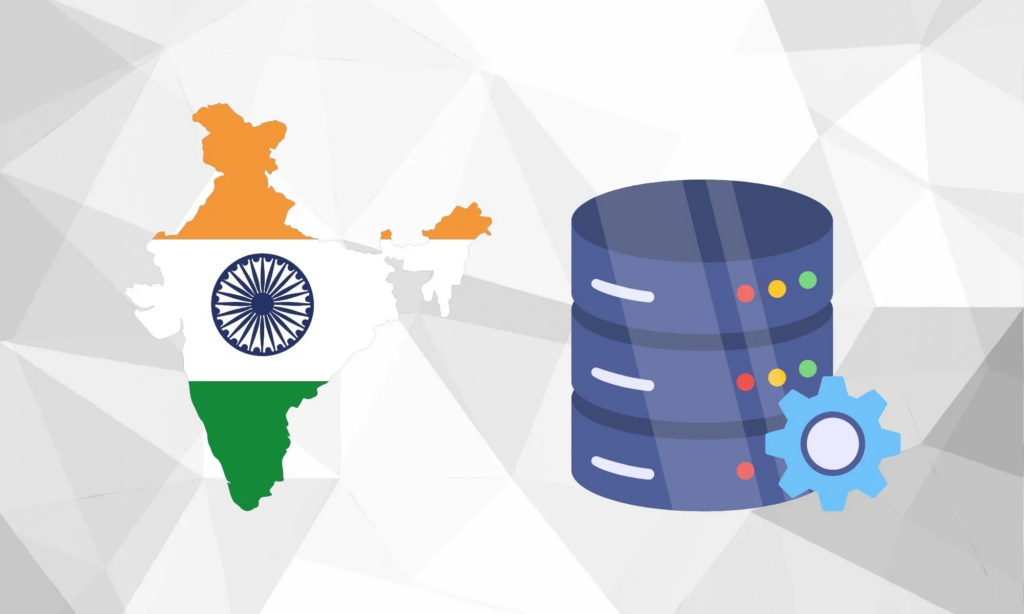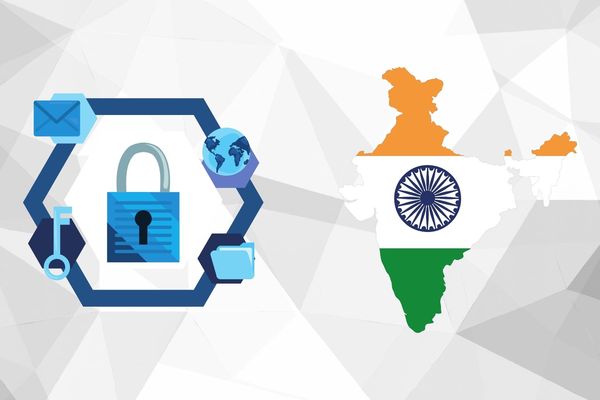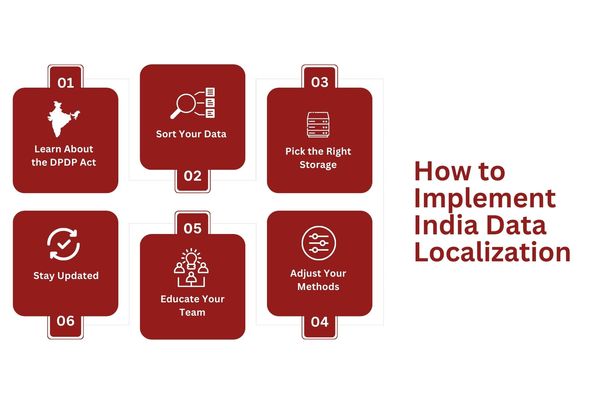
These days, the way businesses manage information is going through some big shifts. One huge change is how India wants data to be stored in their country. This article will get into the nitty gritty of India data localization and why this matters for your business.
We’ll look at how it’ll hit businesses and the bigger picture around protecting and controlling personal data.
As businesses work through this changing situation, getting a handle on what’s going on is key. So, if you’re a business working with Indian resident data, you’ll want to read this entire article. Let’s break down what’s happening with India’s data localization.
Key Takeaways
India’s new DPDP law tells businesses how to handle data properly. If you work with Indian resident data, you need to know how this law works.
If businesses don’t follow the DPDP, they could face big fines of up to $30 million and lose trust.
Need help with these new laws? Captain Compliance is here to guide you through it all.
India DPDP Act Explained
India DPDP Act Explained.jpg

In August 2023, India took a significant step by passing the Digital Personal Data Protection Act (DPDP Act). This legislation was the culmination of a 5-year journey to establish a comprehensive data privacy law in India.
The DPDP Act is about ensuring data protection and keeping Indian customer’s data safe.
It tells businesses how to gather and use this data, especially when dealing with Indian data subjects. Businesses must get clear permission from people before using their data. This means people must clearly say “yes” and know what they’re saying “yes” to.
One key thing for businesses is that the law says they gotta provide clear notices to people about what data is being processed and why. And these notices should be available in both at least of India’s 22 official languages!
The law also has sections about data breaches. If a business has some kind of unauthorized data processing situation or breach, they have to inform both the Data Protection Board of India and the affected individuals.
This can all often mean a lot of work for your business which is why you should consider using a data protection compliance service.
Who Must Follow India’s DPDP?
Navigating the digital world and dealing with cross border data transfer, businesses often wonder about the compliance framework they need to follow. So, who exactly does it apply to?
The DPDP Act isn’t just for businesses based in India. If your business offers goods or services in India or processes data of Indian residents, you’re in the loop. It doesn’t matter where your business is headquartered; if you’re dealing with Indian data, this law is applicable to you.
For businesses, here’s the main point: If you work online, deal with India, and are involved in cross-border data transfer, you need a solid compliance plan and knowledge about the DPDP Act. It’s not just about following rules. It’s about knowing the online world and making sure your business is set for what’s coming next.
Does India Have a Data Localization Requirement?
Does India Have a Data Localization Requirement.jpg

The new 2023 Digital Personal Data Protection Act (DPDP) changed India’s approach to data localization in a big way. The 2019 bill had way stricter limits on data flows, and the 2023 law takes a more moderate stance.
It doesn’t outright demand strict data localization, but it gives the government power to restrict data flows to certain countries with notification. The reason seems to be national security concerns – making sure the government has legal tools to protect its interests.
But it’s important for businesses to realize this isn’t a total relaxation across the board. The law clearly states that sector-specific agencies with existing or future localization requirements stay in effect.
A prime example is the Reserve Bank of India with their localization restrictions on payment and financial data. Their data localization requirements, especially regarding financial information, are still valid and legally binding.
In short, while India has less regulation on data localization overall, some sectors might still have unique requirements. For businesses, this means staying informed, knowing the nuances, and ensuring compliance not just with the DPDP but also with sector-specific regulations.
India Data Localization Explained
Data localization might sound like a fancy term, but it’s pretty straightforward. It’s all about where businesses store and manage their data. Let’s break it down for you.
What is Data Localization?
Data localization means that certain types of data must be stored within the country’s borders.
So, if a business collects data from its consumers in India, it might need to keep that data in India, too. It’s like saying, “Hey, this data was born here, so it stays here!” This idea isn’t unique to India. Many countries are considering or have already put such rules in place.
Why Does India Want Data Localization?
There are a few reasons. One big one is to protect the personal data of its citizens. By keeping data close, India believes it can better guard against misuse. It’s also about having control. If data is stored in India, the Indian government can access it if needed, especially for legal or security reasons.
What Kind of Data Needs to Stay in India?
Now, here’s where it gets a bit detailed. The recent Digital Personal Data Protection Act (DPDP Act) has given some clarity.
The Act allows the government to blacklist countries where personal data can’t be sent. But, it doesn’t say that businesses must keep a copy of all data in India. That’s a relief for many businesses. But there are exceptions. For instance, the financial sector does have rules that data must be stored in India.
For businesses operating in India, it’s essential to keep an eye on these rules. The digital world is always changing, and so are the laws. Being in the know will help businesses stay compliant and avoid any hiccups.
Exemptions to India DPDP Act
While India’s data localization rules are pretty clear, there are some exemptions. These aren’t loopholes but specific situations where the rules might be a bit different. Let’s break them down so you can see if any apply to you:
Protecting India’s Interests
Processing some data is so crucial that it gets a pass on the normal rules. This includes anything done to protect India, keep good relationships with other countries, or keep people safe at home. So entities that look out for India’s safety or investigate crimes might not have to follow all the data localization rules.
Research and Archiving
Businesses can use data for things like research record keeping or statistics without getting in trouble typically. But there’s one big exception they gotta watch out for. The data can’t be used to make choices that impact specific individuals.
So if a business is simply gathering general information for some kind of study, that’s fine. But if they wanna use that data to decide something that affects a particular person, then they need to follow all the DPDP Act.
Others
The government gets that businesses aren’t all alike. So they could give some businesses a pass on certain regulations – like startups and other kinds of businesses. The government might not make them share all the details about the data they gather or keep it super precise.
How to Implement India Data Localization
How to Implement India Data Localization.jpg

Navigating data localization in India can seem daunting, but it’s crucial for businesses to get it right. The Digital Personal Data Protection Act (DPDP) lays out the roadmap. Let’s break it down step by step:
Learn About the DPDP Act
Anyone doing business in India, even if you’re not based there, must abide by the DPDP rules. Businesses should read up on it so they know what it says and can update their policies because if you’re not following the law precisely, you could face severe consequences.
Sort Your Data
Businesses collect all kinds of data these days. You’ve got to sort through everything you’ve got and figure out what’s personal or sensitive. Determine which pieces of data fall under the localization requirements and which don’t.
For example, certain financial information may need to abide by data localization requirements while other information may not.
Pick the Right Storage
Store data locally that needs to stay local. If you use the cloud, make sure your provider has options to keep data in India.
This might mean choosing a specific region for your cloud storage or even opting to store some data on physical servers within the country.
Adjust Your Methods
Review and modify how you handle data. Ensure your data collection, storage, and processing methods align with the DPDP guidelines. This might involve changing some of your current practices or adopting new ones.
Educate Your Team
Your whole team should undergo compliance training to know the ins and outs of DPDP, not just your IT department.
Put together some training sessions to get all up to speed. Do it on the regular, too, since the rules can change. Maybe bring in some compliance professionals like Captain Compliance for more detailed training. After the sessions, get feedback to see who’s grasping it and handle any questions.
Stay Updated
It’s a good idea to stay on top of updates to the DPDP Act and related rules, ensuring your compliance solutions are up-to-date.
When businesses are proactive, it helps them quickly adapt when things shift. They can subscribe to legal newsletters or join forums to stay in the know. Working with a legal consultant or team gives them real-time tips and guidance as stuff evolves.
Penalties for DPDP Non-Compliance
In this digital era, businesses need to follow certain rules, especially in India with that new Digital Personal Data Protection law thingy (DPDP?). But what happens if businesses don’t play by the rules? Well, it could get ugly for them really fast.
Breaking the DPDP could cost a business big time, and the law has some hefty fines for rulebreakers. For instance, if the business has a data breach because they didn’t protect customer’s information properly, they might have to cough up 2.5 billion INR, which is $30 million!
And it’s not just the money either. The business’s reputation could take a big hit, too, and rebuilding trust after something like that can take ages.
The DPDP act has a lot of rules about how digital data can be used. Businesses have to make sure the data they’ve got is accurate and complete.
Closing
Figuring out this whole data localization in India is tricky, no doubt about it. It can feel like wandering through a maze blindfolded sometimes. But hey, at least we’re in it together!
Our crew over at Captain Compliance offers top-notch compliance services to guide your business every step of the way, and whether it’s making sense of the nitty gritty DPDP Act or getting your data storage practices up to date, we’ve got the skills and tools to help you out. We know taking those next steps, especially when you outsource compliance, seems scary, but it doesn’t have to be!
With the right partner guiding you, this whole compliance journey becomes way more manageable. Here at Captain Compliance, we’re passionate about empowering businesses like yours to crush it in this digital age.
We want to make sure you’ve got everything you need to stay compliant and ahead of the curve. So, if you’re scratching your head wondering what to do next, get in touch with us! Let’s figure out this future of data localization in India together.
FAQs
What is India’s DPDP Act all about?
The Digital Personal Data Protection Act (DPDP Act) is India’s way of keeping online data safe. It sets rules for businesses on how to collect and use data, especially for businesses in India.
Want to dive deeper into the compliance? Check out our detailed guides here.
Who needs to follow the DPDP Act?
Not just businesses in India! If your business offers goods or services in India or handles data of Indian residents, the DPDP Act is for you, no matter where you’re based.
Are you curious about how this affects your business? Contact us for more information!
Has India made data localization mandatory for all sectors?
No, while India has some rules on data localization, it’s not a blanket requirement for all sectors. Some sectors, like finance, have stricter rules though.
Want to learn more about data localization? Read more on our data localization guide.
What is India’s stance on data localization?
India’s Digital Personal Data Protection Act (DPDP) of 2023 has shifted the country’s approach to data localization. While it doesn’t demand strict data localization, it allows the government to restrict data flows to specific countries based on national security concerns.